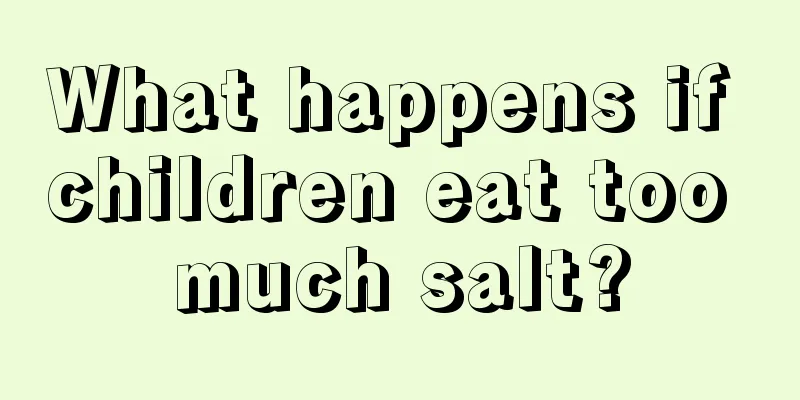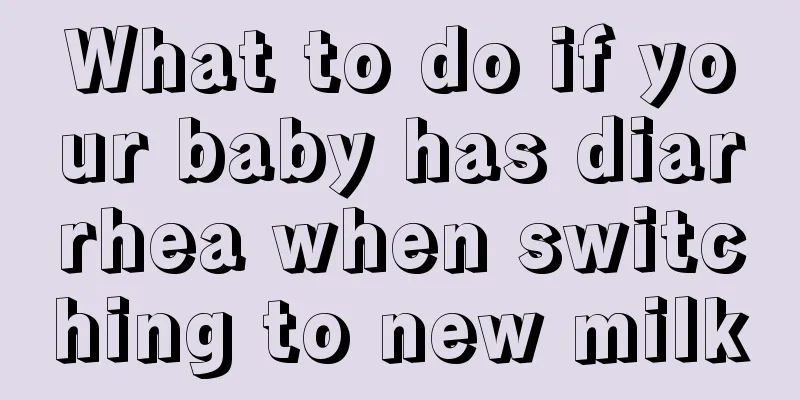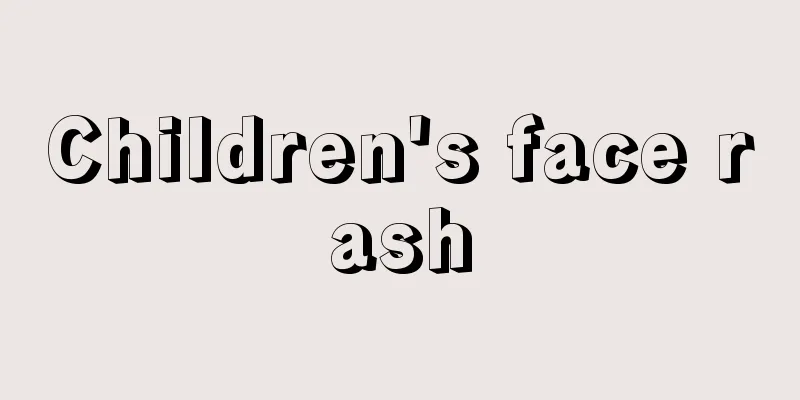What happens if children eat too much salt?

|
Salt is an indispensable condiment in life, because salt is needed when cooking any dish, and at the same time, salt is rich in nutrients. However, it is not advisable to eat too much salt, because eating too much salt will make people feel dry mouth and even cause vascular sclerosis. Especially for children, since their organs are inherently fragile, eating too much salt can lead to serious consequences. So what are the consequences of children eating too much salt? The harm of excessive salt intake to babies 1. Damage to baby's kidneys The baby's digestion and kidney functions are not yet fully developed, and consuming too much salt will increase the burden on the kidneys. 2. Reduce the baby's resistance and make it easy to get upper respiratory tract infection Excessive salt intake will also promote the reproduction of oral mucosal epithelial cells, reduce the baby's oral saliva secretion, and reduce lysozyme accordingly, making it easier for various pathogens to grow in the upper respiratory tract. 3. Affects zinc absorption If the baby consumes too much salt when he is young, it will affect the body's absorption of zinc and calcium, leading to zinc and calcium deficiency, which will affect the baby's intellectual development and bone development, and will also cause his immunity to decline, his stature to be small, and cause various diseases. 4. Lead to heavy taste Babies who often eat salty complementary foods will easily develop a "heavy taste" eating habit and are more likely to suffer from diseases such as high blood pressure and arteriosclerosis when they grow up. For babies under 6 months old, the natural salt they get from breast milk and milk can meet their body needs. At this time, there is no need to add salt to the baby's complementary food. ◆ Do not add extra salt to baby food for babies under 1 year old, because the salt in natural food can already meet the baby's needs. Adding extra salt may be harmful to the baby. After 1 year old, iodized salt can be consumed appropriately. ◆ Infants and young children are more sensitive to salt than adults. If the salt content in food is 0.25%, adults will find it bland, but babies will think it is very salty. ◆ For babies aged 1 to 3 years old, try to use as little salt as possible when cooking every day. Generally, the daily salt intake of children aged 1 to 6 years old should be controlled at around 1 gram, and no more than 2 grams (6 grams for adults), which is the size of a soybean. |
<<: Cleft lip and cleft palate
>>: How is the effect of cleft lip repair?
Recommend
What are the disadvantages of children drinking milk before bed?
In daily life, many parents let their children dr...
How long can a newborn baby use bath gel
Parents usually feel distressed when bathing thei...
How to dissolve phlegm in baby’s nasal cavity?
When we have phlegm in our throat or nasal cavity...
How to treat hydrotesticular effusion in children
Under normal circumstances, there will be a small...
What are the symptoms of anemia in a five-month-old baby?
If the baby is pale at around five months old, pa...
Newborn milk powder feeding amount
As for newborns, we all know that they are very f...
Baby's milk is leaking from the nostrils
Many babies who have just been born are breastfed...
Is it good for babies to eat betel nut hammers?
In daily life, we often see people eating betel n...
What to do if a one-year-old child has a fever
A one-year-old baby refers to a one-year-old baby...
Can a 10-year-old child drink ginger soup?
Our bodies need a lot of nutrients to function he...
Why is my three-month-old baby's urine yellow?
A three-month-old baby has just entered a stable ...
1 month old baby sleep time
Everyone knows that the younger the baby is, the ...
There are 6 ways to diagnose polio
What are the diagnostic methods for polio? This h...
What should I do if my three-year-old child has a fever in the middle of the night?
Generally speaking, young babies have much weaker...
Children's allergic rhinitis folk remedies
Allergic rhinitis in children is a common and fre...









